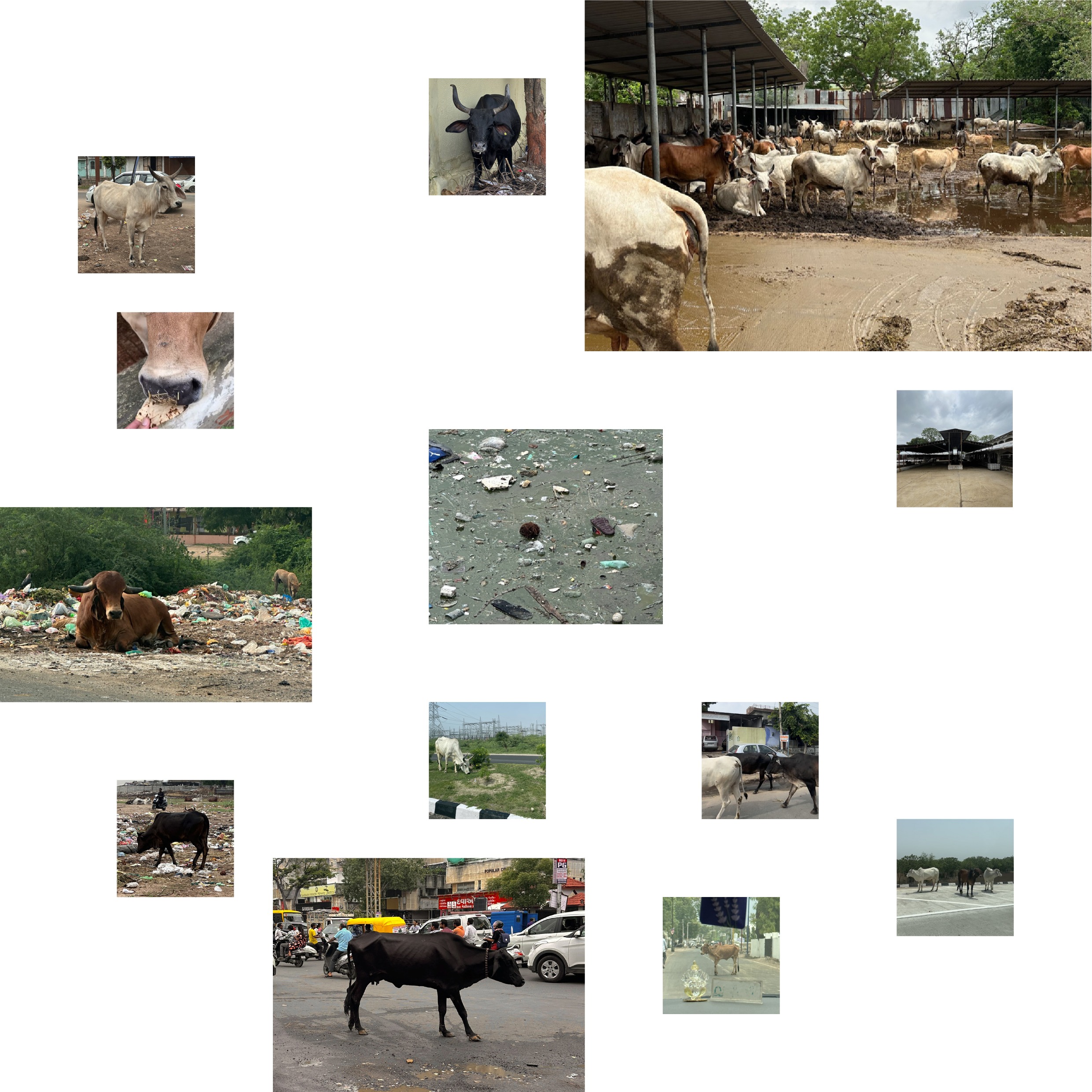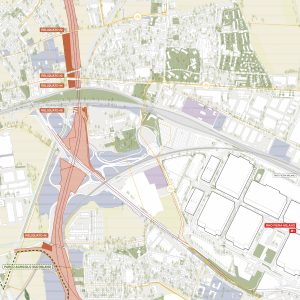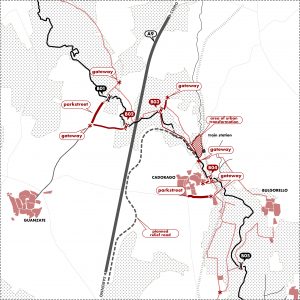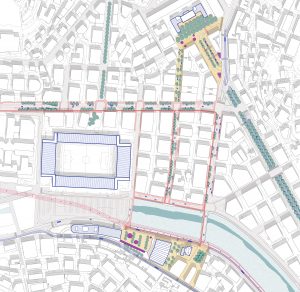This paper examines the urban gaushala—a common yet often overlooked cowshed found across Indian cities—as a spatial formation that quietly manages the excesses of industrial mobility. Typically situated along infrastructural edges, within medians, under flyovers, or on fenced civic peripheries, gaushalas absorb what mobility systems externalize: the injured or economically irrelevant cow, the sacred surplus of agrarian and urban entanglements who transgresses thresholds and unsettles circulatory norms. These structures respond to infrastructural fallout without intervening in the systems that produce it.
As architectural forms, gaushalas resist typological clarity. They function simultaneously as sites of religious obligation and logistical necessity. Neither fully formal nor entirely informal, they materialize contradictions between sanctity and abandonment, maintenance and discard. Yet it is precisely in their thresholds congealing street, infrastructure and species that gaushalas offer insight into an emergent urban condition that evades planning and resists overdetermination.
Through fieldwork conducted in Ahmedabad, Gujarat, combining photographic and photogrammetric documentation of gaushalas, this paper foregrounds their situatedness on the street as a generative site of multispecies urbanism. Drawing from Braidotti’s posthumanism to Escobar’s ontological design, the paper argues that gaushalas challenge the assumptions of functionalist design. They foreground spatial incompleteness, nonhuman adjacency, and infrastructural afterlife as not results of failure, but as necessary frameworks for sustainability. Rather than models to replicate, gaushalas offer a lens through which to reconsider how architecture might respond to the ecological and moral consequences of infrastructural systems. In doing so, they reframe collateral urban space as a shared ground that gives rise to new, if provisional, ways of living together.
Bibliography
- Braidotti, R. (2013). The posthuman. Polity.
- Escobar, A. (2018). Designs for the pluriverse: Radical interdependence, autonomy, and the making of worlds. Duke University Press.
- Haraway, D. J. (2016). Staying with the trouble: Making kin in the Chthulucene. Duke University Press.



